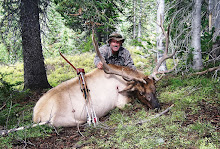I imagine a world where you go out into the woods and all you have are the clothes and gear you brought on your back. No one is coming to save you . Resupply, like hope is not a strategy. You're it... and what you have better work ...EVERY TIME... all day, maybe all night, maybe all week... no matter what hits the fan. That's why King of the Mountain started.
As a society we're not used to that kind of thinking. I and four like minded friends set out in 1975 to walk the John Muir, High Sierra, Desolation Wilderness, Angeles Crest and San Bernardino mountains. Later finishing the best parts of the Pacific Crest Trail (Mexico to Canada) separately. We wouldn't come out for supplies all summer long. We learned a great deal about what works and what only works SOMETIMES. It set me to thinkin' ....what if all you have is all you have? What if resupply was not an option?
Lately this has become reflected in modern art by a couple of new books/ movies; The Road (adaptation of McCarthy's Pulitzer prize winning book by the same name) and The Book of Eli. Both stories are post-apocalyptic tales of a journey. The Road is taken by a father and his young son at the end of the nuclear winter. The Book of Eli is set in an America and in a world that has lost its world order. The battle ensues for the "book" that can be used to control the masses.
Many call that kind of thinkin' "Survivalist" mentality. But, is it really survivalist (fear based, scarcity, etc)... and more is it really unthinkable? And, if you think like that for a moment: Wouldn't you want to have stashed someplace a very large can of WHOOPASS as well as a can of WHOOPASS small enough to take anywhere?
Where would you start? What do you need? How will it work? When do you need it? Why would you want it?
I suppose this "prepper" mentality can become an obsession. Or, rightfully placed, it can also be the extension of religion. No one does this better than the Mormon community where extensive food storage and self-reliance preparedness is part of the culture. After witnessing our many recent natural disasters one has to wonder if this attitude of self-reliance and preparedness doesn't make more sense than blindly assuming that the trucks will always run and the power will always flow.
As a nation, though, haven't we honestly become like de-clawed house cats in many ways? Most urban dwellers couldn't feed themselves without robbing their neighbor. Lines of vehicles littered the streets in the Northeast after the recent hurricanes; lined up for miles to get rationed fuel; fighting broke out after hours and then became worse after days. What might it be like after weeks?
And in that world, will your cell phone bring you the law enforcement help you might need when neighbor turns on neighbor? A call to 911 in most true violent emergency cases brings a team of investigators not timely intervention. Lately we've witnessed an explosion in gun sales as perfectly rational Americans answer their own call to at least take a first step to defending themselves, their families and their property.
Americans aren't stupid. They simply vote quietly with their feet and their wallets. They avoid the confrontation with authority. This isn't the first time that good, law-abiding people have prepared themselves against lawlessness or tyranny.
And, once again, art mimics life. The Tarrantino movie, "Django" has an underlying theme that is missed by so many of the pundits and reviewers: A SLAVE is turned into a FREEMAN when he is given a gun and taught how to use it. Django’s journey mirrors the German fairy tale of Siegfried’s journey of rescuing Broomhilda. Because slave masters didn’t want marriages, Django and Broomhilda were married in secret, but because they’re sold in different direction, they would probably never see each other again. Even though he gets his freedom, Django’s willing to go back into the pit of hell to rescue his love.
He couldn't have done that as a slave. The plantation owner played by Don Johnson wonders out loud a question that has troubled him since his youth, "there were 100's of them and few of us. I always wondered why they didn't just kill us." They didn't have the means. They had no guns.
Neither did those on Schindler's list.
Who is coming to save you and your loved ones? What about if no one is coming because they're all busy enough saving their own? Or the evil that you face has no mercy.
Life isn't a movie. At a movie in Aurora, CO recently 12 were killed and 58 were wounded by a gunman preying on an innocent crowd that all heeded the sign on the door, "GUN FREE ZONE". Over and over we've had it shown to us that there is no place in the world more dangerous than a GUN FREE ZONE.
Whether that is a movie theatre in Colorado or the streets of Chicago, New York and Washington DC, one has to wonder about the folly of FREEMEN who choose to rely on the mercy of evil.
Sunday, January 06, 2013
Subscribe to:
Post Comments (Atom)




1 comment:
Trust no Future, howe'er pleasant !
Let the dead Past bury its dead !
Act,— act in the living Present !
Heart within, and God o'erhead !
from "The Psalm of Life" by Longfellow
I am glad to see you are writing again. You present a powerful argument for
self defense.
Post a Comment